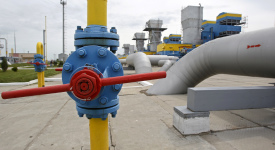Tunisia’s future will be shaped by the capacity of its leaders to introduce smart and innovative reforms. The Libyan crisis just across the border has had a huge impact on the small North African country, making the Tunisia-Libya interplay more complex – in contrast to Tunisia’s relations with Algeria, which were helpful to enact bold actions against terrorism.
A number of defining events took place over the summer and early autumn this year in Tunisia. First, President Beji Caid Essebsi’s asked the National Assembly to allow Tunisian women to marry non-Muslim foreign men, which is normally forbidden under the Muslim religious law. He also asked that gender equality be considered where inheritance is concerned.
Second was the resignation of the minister of finance and foreign investment, Fadhel Abdelkefi, in the wake of attacks on his integrity regarding a customs lawsuit and the third one was a new law introduced by the parliament which grants an amnesty to civil servants prosecuted by the state in some circumstances. About 9,000 civil servants that had been accused previously were given amnesty.
These examples demonstrate the need of Tunisian leaders to re-establish the authority of the state, which has been badly damaged since 2011. As a result of a number of smart moves by the government to consolidate its governance and improve security environment, foreign tourists have been slowly returning to the country after the 2015 terrorist attacks in Tunis and Sousse. Although Tunisia’s border with Libya is far from secure, the overall situation has improved there – in particular, the flow of weapons seems to be under control. With Algeria, the situation has likewise stabilized but the authorities still need to work to curtail the informal economy where goods are smuggled in from Libya or through ports.
However, while security and civil rights situations are improving, Tunisia’s finances are deteriorating and its foreign indebtedness was increasing. The country is on track of being forced to heed to the advice of the International Monetary Fund. Beyond taming the finances and the informal sector, the country will have to work towards decreasing inequalities and the huge regional disparities in wealth.
Another major issue to be tackled is how to soften the impact of the Libyan turmoil ranging from ever increasing number of illegal migrants fleeing for Europe, a devastating attack on the Algerian gas fields or the near-collapse of Mali. And there is a huge spillover effect within Tunisia itself. The number of Tunisian workers in Libya who returned home between 2010 and 2014 is estimated to be around 60,000 out of 91,000 officially registered. Official remittance inflows went down by a third by 2014 compared to 2010. The poorer southern region of Tunisia has been hardest hit, which explains the major rise in illicit trade flows across the border.
‘Tunisia, Slow Progress in a Turbulent Region’ – Analysis by Francis Ghiles –
Barcelona Centre for International Affairs (CIDOB).
(The Analysis can be downloaded here:
https://www.cidob.org/en/publications/publication_series/notes_internacionals/n1_181/tunisia_slow_progress_in_a_turbulent_region)







